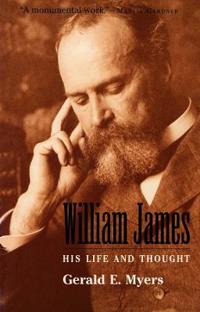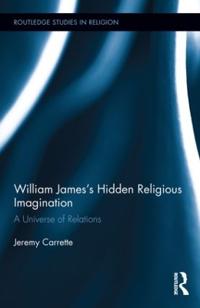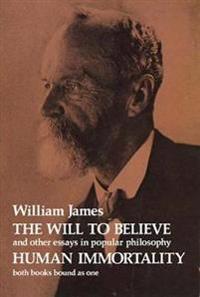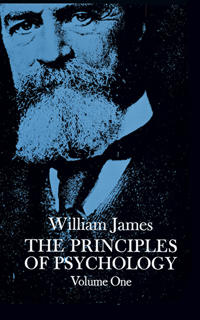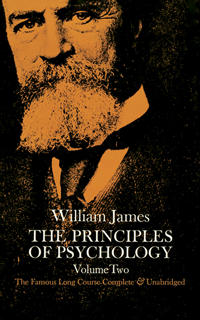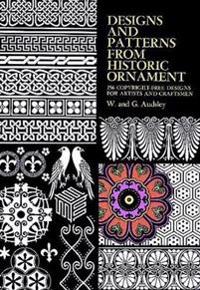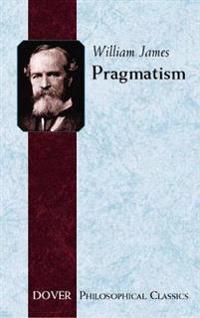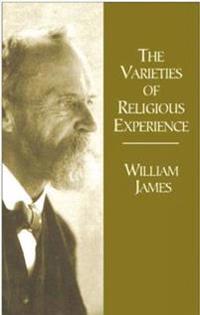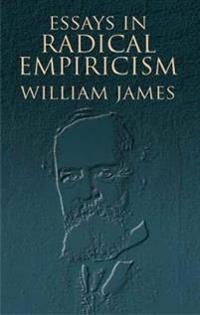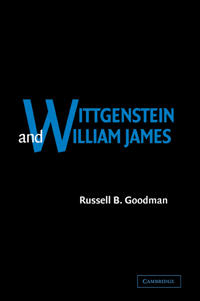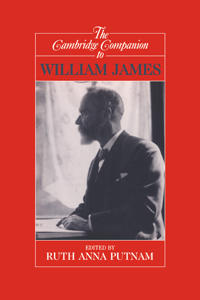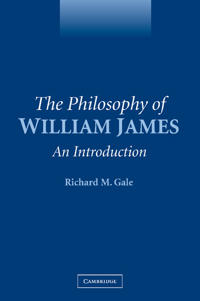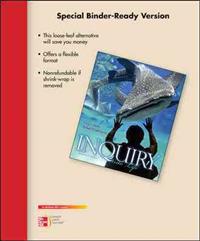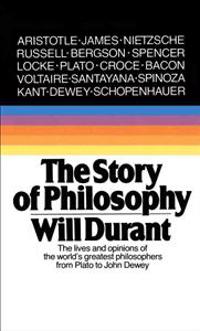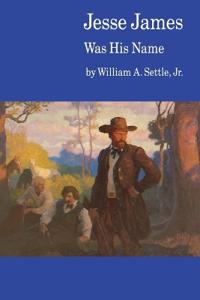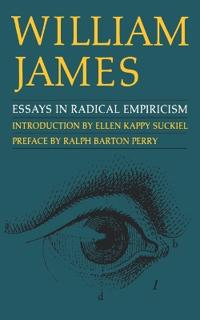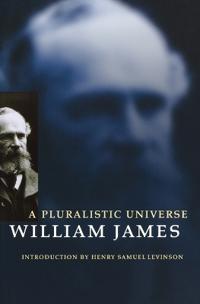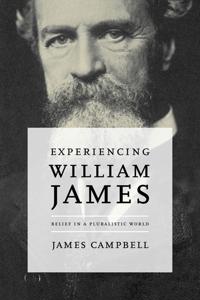William James (Häftad)
avGerald E. Myers
ISBN: 9780300089172 - UTGIVEN: 200105This magisterial book is the first comprehensive interpretive and critical study of one of America's foremost philosophers and psychologists. Gerald Myers traces James's life and career and then uses this fresh biographical information to illuminate his writings and ideas.[...]
Fundamentals of Advanced Accounting (Inbunden)
avFischer, Paul Marcus, Ph.D., William James Taylor, Cheng, Rita Hurtung, Ph.D.
ISBN: 9780324378900 - UTGIVEN: 2007-03-09William James's Hidden Religious Imagination
ISBN: 9780415828635 - UTGIVEN: 2013-05This book offers a radical new reading of William James's work on the idea of 'religion.' Moving beyond previous psychological and philosophical interpretations, it uncovers a dynamic, imaginative, and critical use of the category of religion. This work argues that we can only fully understand James[...]
The Will to Believe and Human Immortality (Häftad)
avWilliam James
ISBN: 9780486202914 - UTGIVEN: 195606The Principles of Psychology (Häftad)
avWilliam James
ISBN: 9780486203812 - UTGIVEN: 195712Volume 1 of the famous long course, complete and unabridged. Stream of thought, time perception, memory, experimental methods--these are only some of the concerns of a work that was years ahead of its time and is still valid, interesting and useful. "He had said it all, and it is all there. It's an [...]
The Principles of Psychology (Häftad)
avWilliam James
ISBN: 9780486203829 - UTGIVEN: 195712Vol 2
Volume 2 of the famous long course, complete and unabridged. Stream of thought, time perception, memory, experimental methods--these are only some of the concerns of a work that was years ahead of its time and is still valid, interesting and useful. "He had said it all, and it is al[...]Designs and Patterns from Historic Ornament (Pocket)
avWilliam James Audsley
ISBN: 9780486219318 - UTGIVEN: 196806Psychology (Pocket)
avWilliam James
ISBN: 9780486416045 - UTGIVEN: 2001-05Condensed and reworked from James's monumental "Principles of Psychology, this classic text examines habit; stream of consciousness; self and the sense of personal identity; discrimination and association; the sense of time; memory; perception; imagination; reasoning; emotions, instincts; the will a[...]
The Varieties of Religious Experience (Pocket)
avWilliam James
ISBN: 9780486421643 - UTGIVEN: 2002-08The Varieties of Religious Experience was an immediate bestseller upon its publication in June 1902. Reflecting the pluralistic views of psychologist turned philosopher William James, it posits that individual religious experiences, rather than the tenets of organized religions, form the backbone of[...]
Wittgenstein and William James
ISBN: 9780521038874 - UTGIVEN: 2007-07This 2002 book explores Wittgenstein's long engagement with the work of the pragmatist William James. In contrast to previous discussions Russell Goodman argues that James exerted a distinctive and pervasive positive influence on Wittgenstein's thought. For example, the book shows that the two philo[...]
Digital Design (Inbunden)
avWilliam James Dally, R. Curtis Harting
ISBN: 9780521199506 - UTGIVEN: 2012-09-17Provides students with a system-level perspective and the tools they need to analyze and design complete digital systems using Verilog.[...]
The Cambridge Companion to William James
ISBN: 9780521459068 - UTGIVEN: 1997-06William James (1842?1910) was both a philosopher and a psychologist, nowadays most closely associated with the pragmatic theory of truth. The essays in this Companion deal with the full range of his thought as well as other issues, including technical philosophical issues, religious speculation, mor[...]
The Philosophy of William James (Pocket)
avRichard M. Gale
ISBN: 9780521549554 - UTGIVEN: 2004-10This is an accessible introduction to the full range of the philosophy of William James. It portrays that philosophy as containing a deep division between a Promethean type of pragmatism and a passive mysticism. The pragmatist James conceives of truth and meaning as a means to control nature and mak[...]
William James: In the Maelstrom of American Modernism (Häftad)
ISBN: 9780618919895 - UTGIVEN: 2007-12The Story of Philosophy (Pocket)
avWilliam James Durant
ISBN: 9780671739164 - UTGIVEN: 199101"The Story of Philosophy" chronicles the ideas of the great thinkers, the economic and intellectual environments which influenced them, and the personal traits and adventures out of which each philosophy grew.
[...]The Heart of William James
ISBN: 9780674065994 - UTGIVEN: 2012-09On the one hundredth anniversary of the death of William James, Robert Richardson, author of the magisterial "William James: In the Maelstrom of American Modernism", assembles a wide-ranging selection of essays and writings that reveal the evolution of James' thought over time, especially as it was [...]
Principles of Psychology (Inbunden)
avWilliam James
ISBN: 9780674705593 - UTGIVEN: 1981-12The publication in 1890 of William James's acknowledged masterpiece marked a turning point in the development of psychology as a science in America. "The Principles of Psychology" also became a source of inspiration in philosophy, literature, and the arts. When John Dewey reviewed it, he predicted t[...]
Jesse James Was His Name (Häftad)
avWilliam A. Settle
ISBN: 9780803258600 - UTGIVEN: 197706"Jesse James," said Carl Sandburg, "is the only American bandit who is classical, who is to this country what Robin Hood or Dick Turpin is to England, whose exploits are so close to the mythical and apocryphal." For this definitive study no significant source of information concerning Jesse James an[...]
Essays In Radical Empiricism (Pocket)
avWilliam James
ISBN: 9780803275898 - UTGIVEN: 1996-04Essays in Radical Empiricism shows William James concerned with ultimate reality and moving toward a metaphysical system. The twelve essays originally appeared in journals between 1904 and 1906. James himself collected them to illustrate what he called "radical empiricism," but this volume was not p[...]
A Pluralistic Universe (Pocket)
avWilliam James
ISBN: 9780803275911 - UTGIVEN: 1996-12In his famous lectures at Oxford University in 1908 and 1909, William James made a sustained and eloquent case against absolute idealism and intellectualism in philosophy. Ever since Socrates and Plato, the philosophy of the absolute had held sway-the emphasis on essence at the expense of concrete a[...]
Experiencing William James
ISBN: 9780813940472 - UTGIVEN: 2017-11William James has long been recognized as a central figure in the American philosophic tradition, and his ideas continue to play a significant role in contemporary thinking. Yet there has never been a comprehensive exploration of the thought of this seminal philosopher and psychologist. In Experien[...]
Experiencing William James
ISBN: 9780813940489 - UTGIVEN: 2017-11William James has long been recognized as a central figure in the American philosophic tradition, and his ideas continue to play a significant role in contemporary thinking. Yet there has never been a comprehensive exploration of the thought of this seminal philosopher and psychologist. In Experien[...]

